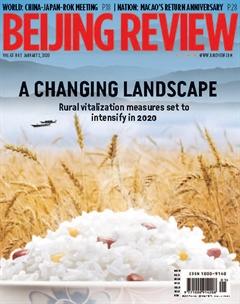A Tall Order
By Kerry Brown
Despite expectations of a far closer outcome, the UK general election on December 12, 2019 resulted in a clear victory for the Conservative Party under Boris Johnson. It continues its history as the most successful electoral force in modern European history. Despite the doomsayers, Johnson now has a clear majority and has already flexed his muscle by passing the legislation to take the UK out of the EU on January 31. Barring complete disaster for him and his government, this will now happen.
For the night on which this will formally occur, approval has already been given in parliament for Big Ben to toll. For many hearing the bell live, or watching on TV, it will be a moment to rejoice. They feel, as some say, that they got their country back. Their struggles over the last four decades will have been vindicated. The UKs sovereign integrity will have been restored, and it can now go about the world with a restored sense of independence and autonomy. Many will wait for the raft of new investment promised in public services which they feel was diverted to Brussels, Belgium, the administrative capital of the EU. A new era will have dawned.

But it is very likely, despite what happened on December 12, 2019, that this group will be in a minority. In Scotland, the tolling of the bell will ring in a period in which they will agitate for a new referendum on independence from the UK. In Decembers election, the Scottish Nationalist Party achieved almost across-the-board success, leaving only a handful of seats occupied by other parties. Their leader, Nicola Sturgeon, has already formally requested that this referendum be held. There is a good chance it may be successful if it is held.
For many others, their emotional and family links with the EU will remain strong. This includes the 3 million EU nationals still based in the UK, many of whom have felt troubled by the turn of politics since the referendum on EU membership was held in mid-2016. For them, insecurity about their status will continue. There is also a considerable group—perhaps half the population—who feel that leaving the EU is a mistake, and who have protested, written and agitated since 2016 to overturn the decision made that year.

Fallout of Brexit craze
The most important of these is a profoundly ailing public service sector. Child poverty in the UK is at levels that are simply unacceptable for a developed country. In one shocking statistic, released during the election, it was stated that 300,000 people go hungry every day. Despite this, the UK remains a place with pockets of exceptional wealth. Inequality, particularly in the last 10 years, has continued to increase relentlessly. The number of homeless has also exploded. The simple fact is that the UK, while distracted by Brexit, has grown into a poorer, more unequal and more brutal place for those who are the least able to look after themselves.
This is morally appalling. But on top of it can be added the vexed position that the UK now has in the wider world, veering between being wholly linked to U.S. President Donald Trump, one of Johnsons closest allies, and promising to seek new relations with countries like China and India. Johnson will attempt to solve this conundrum with a group of colleagues who are widely seen as the least capable cabinet and the least experienced ever to have served in the UK.
Politicians rightly complain about the levels of abuse that have been directed at them, particularly on social media. But many of them, and particularly Johnson, have fueled an atmosphere of divisiveness, often helped by legacy media, much of which has become little more than machines for producing partisan political commentary rather than proper analysis and balance.
The UKs painful period over the last decade is therefore unlikely to end any time soon. Brexit will symbolically occur at the end of January. But the nitty-gritty of a trade deal will need to be sorted out over 2020—perhaps the hardest challenge of all. Meanwhile, health services, education, the environment and social services in general will need more attention. The new government may well be able to surprise everyone, as they did on December 12, and pull off something unique and spectacular.
But if it falters, or fails, it will face a public that is unforgiving and a world which is preoccupied with its own issues and has little time for what is seen as the self-inflected drama of Brexit; and for Johnson, he will face a party that proved brutal even to its own most successful figures (like Margaret Thatcher) when it scented failure.

